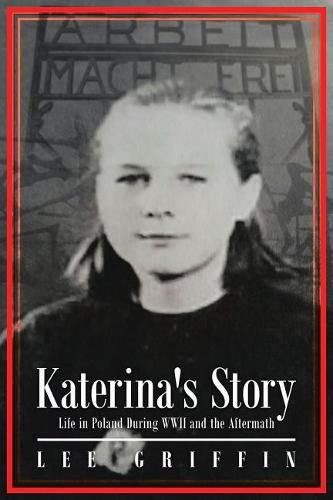Readings Newsletter
Become a Readings Member to make your shopping experience even easier.
Sign in or sign up for free!
You’re not far away from qualifying for FREE standard shipping within Australia
You’ve qualified for FREE standard shipping within Australia
The cart is loading…






This title is printed to order. This book may have been self-published. If so, we cannot guarantee the quality of the content. In the main most books will have gone through the editing process however some may not. We therefore suggest that you be aware of this before ordering this book. If in doubt check either the author or publisher’s details as we are unable to accept any returns unless they are faulty. Please contact us if you have any questions.
Katerina’s Story: Life in Poland During WWII and the Aftermath is a historical novel based on a real person’s account. For most of her life, this Polish woman keeps her past secret, even from her children. Only now, at age ninety-three, is she willing to revisit her memories with her friend Lou Ellen. The bittersweet journey begins in childhood during the early 1930s when she grieves over her mother’s mysterious death, withstands a stepmother’s cruelty, and broods over her father’s indifference to her grievances. Her happiness from a peaceful and loving life at a convent is brief, when in 1939, German armies invade and capture the entire country. Within days, Nazis nab her, force her into a stinking boxcar, and steam toward Dachau, the notorious concentration/labor camp in Germany. As one of Hitler’s slave workers, Katerina’s harrowing fight for survival begins. She witnesses torture and savage deaths and endures disease, near-starvation, and brutality. Many captives abandon hope and commit suicide, but not this tough, courageous young woman. She relies on her faith and trust in God, the power of prayer, and wit.
When war ends, she marries a former POW, and they enjoy a loving, promising life in Italy with their two children for thirteen years when tragedy thwarts her happiness again. Subsequently, by the time she arrives in the United States as a refugee ready to build a new life, Katerina has a new husband, two additional children, and another child on the way. Her troubles are far from over. She and the family face language difficulties and discrimination at school and in the workplace. In addition, Katerina realizes she must deal with destructive aftermath issues, such as failing to trust people and holding onto an intense hatred for Hitler and his Nazi regime. Eventually, Katerina discovers inner peace through grace and forgiveness.
$9.00 standard shipping within Australia
FREE standard shipping within Australia for orders over $100.00
Express & International shipping calculated at checkout
This title is printed to order. This book may have been self-published. If so, we cannot guarantee the quality of the content. In the main most books will have gone through the editing process however some may not. We therefore suggest that you be aware of this before ordering this book. If in doubt check either the author or publisher’s details as we are unable to accept any returns unless they are faulty. Please contact us if you have any questions.
Katerina’s Story: Life in Poland During WWII and the Aftermath is a historical novel based on a real person’s account. For most of her life, this Polish woman keeps her past secret, even from her children. Only now, at age ninety-three, is she willing to revisit her memories with her friend Lou Ellen. The bittersweet journey begins in childhood during the early 1930s when she grieves over her mother’s mysterious death, withstands a stepmother’s cruelty, and broods over her father’s indifference to her grievances. Her happiness from a peaceful and loving life at a convent is brief, when in 1939, German armies invade and capture the entire country. Within days, Nazis nab her, force her into a stinking boxcar, and steam toward Dachau, the notorious concentration/labor camp in Germany. As one of Hitler’s slave workers, Katerina’s harrowing fight for survival begins. She witnesses torture and savage deaths and endures disease, near-starvation, and brutality. Many captives abandon hope and commit suicide, but not this tough, courageous young woman. She relies on her faith and trust in God, the power of prayer, and wit.
When war ends, she marries a former POW, and they enjoy a loving, promising life in Italy with their two children for thirteen years when tragedy thwarts her happiness again. Subsequently, by the time she arrives in the United States as a refugee ready to build a new life, Katerina has a new husband, two additional children, and another child on the way. Her troubles are far from over. She and the family face language difficulties and discrimination at school and in the workplace. In addition, Katerina realizes she must deal with destructive aftermath issues, such as failing to trust people and holding onto an intense hatred for Hitler and his Nazi regime. Eventually, Katerina discovers inner peace through grace and forgiveness.